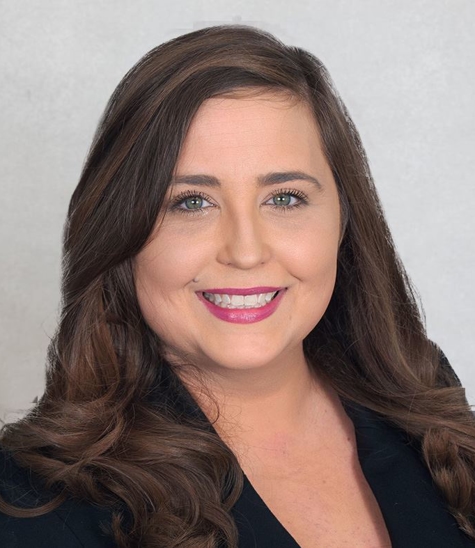
Questions And Answers On Florida Divorce Law
What happens to my children in a Florida divorce?
When parents of minor children divorce in Florida, a document known as a “Parenting Plan” must be established. The Parenting Plan sets forth how the parents will make major decisions related to the minor children, a legal concept known as “parental responsibility”. Either “shared parental responsibility” or “sole parental responsibility” will be established. Shared parental responsibility is appropriate when both parents are fit and proper to share decision-making and appropriate care for the children. Sole parental responsibility is rare but may be appropriate when one of the parents is unfit. Under shared parental responsibility, both parents have a right to share in the rights and responsibilities of parenting. Each has the right to participate in major decisions affecting the children.
The Parenting Plan will also establish a timesharing schedule for how the children will divide their time between the parents, as well as other important details which will assist the parties in effectively co-parenting after the divorce. In most cases, a Parenting Plan is reached by agreement of the parties, but in others, the court may establish a Parenting Plan after hearing each parent’s testimony and, more often than not, the testimony of a court-appointed Guardian Ad Litem or Parenting Plan Evaluator, as discussed below.
The children should not be used as instruments of vengeance or placed in the middle, either during or after the divorce. Parental conflict over and around the children can be exceptionally damaging to your children and to your post-divorce co-parenting relationship.
At the very beginning of the divorce, decisions need to be made about how your children’s time will be divided between mom’s home and dad’s home while the divorce is pending. If you and your spouse cannot agree, the judge will decide these matters at a temporary relief hearing, but this is only a last resort after attempts to arrive at a compromise have failed. Under Florida divorce law the court has the power to appoint a Guardian Ad Litem or a Parenting Plan Evaluator to evaluate the entire family to determine a Parenting Plan that is in the best interests of your children. In many instances, taking into consideration the unique facts of your case, we will request the appointment of such an expert to assist in fashioning a timesharing schedule, to make sure you are heard and to reduce the “he said vs. she said” acrimony. In order to prevent psychological harm to the children of divorcing parents, no minor child’s deposition can be taken nor can the child be brought to a deposition. Further, without an order of the court based upon very compelling reasons, no minor child can be subpoenaed to appear at a hearing as a witness or brought to a court hearing.
How are family bills paid during the divorce process?
During the marriage, the income of both spouses is frequently used to support the family home and lifestyle if that has been the case historically. When divorce commences, you and your spouse typically separate and two households must be maintained on the same income. It is crucial that you speak to your attorney early after this occurs to make sure you are not paying too much or receiving too little based on your circumstances since the early months after separation can set a precedent for the rest of the case and thereafter.
How is child support calculated in Florida?
Under Florida divorce law, the court may order either or both parents to pay an amount necessary for the support of the minor children of the marriage. Florida has established child support guidelines to calculate child support. The guidelines are determined by the income of the parents, and other factors. Other elements of child support include:
- The cost of health insurance for the children
- The cost of day care or after school care expenses, where appropriate
- Under certain circumstances, the cost of private school
We will help you calculate how much will be paid or received in child support based on these guidelines. Under Florida law, child support normally terminates when your child graduates from high school even if your child is 18 years old before he or she graduates, as long as graduation occurs before age 19. If a child is physically or mentally dependent, child support can be required to continue after the age of majority. Child support does not include the expenses of a college education. The parties may agree to contribute to these expenses, but the court cannot require financial responsibilities for your children after they graduate from high school. The court also cannot order automatic cost of living increases in child support unless the parties agree to such terms. Child support is always modifiable upon proof of a substantial change in financial circumstances that meet certain requirements under Florida law.
Will I pay or receive alimony in my divorce?
During a Florida divorce, the higher income-earning spouse may be required to contribute to the temporary and ongoing support of the other spouse while the proceeding is pending. This may or may not have an impact on the final resolution of this issue, but it is important that you not pay too much or receive too little during the early stages of your divorce. For the final alimony determination, Florida law allows for several different types of alimony: permanent alimony, durational alimony, rehabilitative alimony, bridge-the-gap alimony, and lump sum alimony. Alimony for support is designed to provide the recipient spouse with funds sufficient to continue living a lifestyle consistent with that of the marriage. The length of the marriage and the disparity between the incomes of the spouses are two of the several factors that will determine the type or types of alimony, if any, in each case. Your attorney will discuss with you the various forms of alimony and your rights and risks regarding alimony.
What is equitable distribution?
Equitable distribution is the division of the parties’ assets and liabilities. “Marital property” (as described below) will be equitably divided between you and your spouse when your marriage is dissolved. While there is a legal presumption that “equitable” means “equal,” there are instances when a disproportionate distribution favoring one party or the other may be more fair. Under equitable distribution, you will end up with a post-divorce estate of similar value to your spouse’s rather than a joint owner of each asset.
What is marital property?
Marital property is any asset acquired or liability incurred during the marriage, individually by either spouse or jointly between them, usually up to the date of the filing of the divorce. This includes, but is not limited to, houses, land, businesses, retirement accounts, stocks and stock options, bonds, notes receivable, assets held in trusts or partnerships, airplanes, boats, cars, investments, the contents of your home, gifts from or to your spouse, jewelry, collections, etc.
When dividing property in a divorce, does it matter whose name is on the title?
Whether your name is on the title of the property is not the measure of whether an asset is marital for purposes of property division. But it may be relevant in determining whether a non-marital asset has become marital in nature.
What is nonmarital property under Florida divorce law?
For purposes of property division in a Florida divorce, nonmarital property generally falls into three categories. It includes anything that you or your spouse:
- Owned prior to the marriage and has been maintained as separate property during the marriage
- Received at any time during your marriage as a gift from a third party or by inheritance and has been maintained as separate property
- Earned by or received from marital labor after the divorce papers are filed
What is the role of a forensic accountant (CPA) in a divorce?
A forensic accountant, usually a Certified Public Accountant (CPA), is one of the team members you or your attorney may retain to value assets or to locate missing assets or income. An accountant may also calculate your historical standard of living for the alimony calculation, determine your or your spouse’s ability to meet (or restrictions upon your ability to provide) alimony requested, or to determine the tax consequences of various alimony and equitable distribution scenarios. A CPA who is also a business valuation expert may assist in valuing your or your spouse’s interest in a closely held business. We only retain independent, highly credible, qualified experts as they are a reflection on you as well as on our firm.
What should I do to get ready for my divorce?
To prepare for a Florida divorce, we recommend that you gather documents about what you and your spouse own (assets), what you and your spouse owe (liabilities), and about your and your spouse’s income, preferably the last three years of tax returns. You might obtain a credit report to determine which obligors view you as an obligee in case your spouse signed your name on a credit card without your knowledge. Obtain copies of a full year’s worth of bank statements and canceled checks, investment account statements, credit card statements, applications for loans, and other important papers documenting assets, expenses, and the flow of income over the last year. Prepare a “draft” financial statement that lists your and your spouse’s incomes, and all assets and liabilities. The more accurate financial information and back-up documentation you are able to provide to your attorney, the more likely you are to keep the cost of the divorce down and the faster your divorce can be brought to a conclusion.
Awards & Accolades

-
 Nancy Hutcheson Harris Founder, Shareholder
Nancy Hutcheson Harris Founder, Shareholder -
 Joseph D. Hunt Shareholder
Joseph D. Hunt Shareholder -
 Christine L. Derr Shareholder
Christine L. Derr Shareholder -
 Katherine C. Scott Shareholder
Katherine C. Scott Shareholder -
 Nicole M. Gehringer Partner
Nicole M. Gehringer Partner -
 Cory A. Brandfon Partner
Cory A. Brandfon Partner -
 James J. Wimsatt Attorney
James J. Wimsatt Attorney -
 Grace M. Samarkos Attorney
Grace M. Samarkos Attorney -
 M. Tess Bedell Attorney
M. Tess Bedell Attorney -
 Cece Ingle Paralegal
Cece Ingle Paralegal -
 Phillip Drake Paralegal
Phillip Drake Paralegal -
 Tracy Reese Paralegal
Tracy Reese Paralegal -
 Laura Holler Operations Manager
Laura Holler Operations Manager -
 Ashley James Executive/Marketing Assistant
Ashley James Executive/Marketing Assistant -
 Lauren Weismann Legal Assistant
Lauren Weismann Legal Assistant -
 Wanda Alton Receptionist
Wanda Alton Receptionist -
 Jill Gosline Legal Assistant
Jill Gosline Legal Assistant -
 Jackie Anguiano Legal Assistant
Jackie Anguiano Legal Assistant -
 Claudia Guzman Paralegal
Claudia Guzman Paralegal
Why Choose Us?
Protection Without Destruction™
-
Experience on Your Side
Collectively, our team has over 120 years of legal experience. When you work with us you gain access to a deep knowledge base of experienced attorneys and staff, including board-certified attorneys.
-
Solutions-Oriented
With 95 percent of our cases settling - our team focuses on a solutions-oriented approach. Your family is our priority, which is why we strive to find the best solution for you and your family.
-
Personal Attention No two cases are the same, our firm strives to provide you with a personalized experience that is tailored to your goals and your family's needs. You will work directly with your attorney alongside a dedicated team to help strategize your best interests.
View Reviews -
Leaders Within the Community Outside of practicing law, our firm is involved with many organizations within the community, including, but not limited to, Tampa Theatre Board of Directors, Lawyers for Literacy Mentoring Program, Rotary Club of Tampa & Big Brothers & Big Sisters of Tampa Bay. Click on each attorney's bio to see a full list of community involvement.
Meet Our Team





.2211041018550.png)















.2302091346550.jpg)
.2302091347550.jpg)
.2302091344550.jpg)
.2302091345550.jpg)
.2302091347550.jpg)
.2302091345550.jpg)









.2502201314174.jpg)
